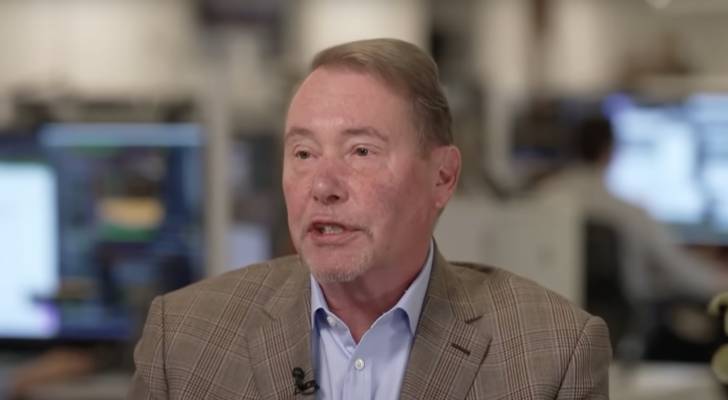DoubleLine Capital
Moneywise and Yahoo Finance LLC may earn commission or revenue through links in the content below.
The record inflation Americans faced in the summer of 2022 may now feel like a thing of the past. But DoubleLine Capital founder Jeffrey Gundlach — widely known as the “Bond King” — warns that price pressures could resurface.
In a recent CNBC interview, Gundlach pointed to what he called “a remarkable divergence of views” at the Federal Reserve.
The Fed cut its benchmark interest rate by 25 basis points at last month’s meeting. But projections vary widely [2]: while the median Federal Open Market Committee member expects two more quarter-point cuts this year, one projects a full 1.25 percentage points of easing — five quarter-point cuts in total.
“I think that’s a little disturbing for the inflation outlook,” Gundlach said. He added that if President Donald Trump replaces Fed chair Jerome Powell with someone more willing to follow his push for steeper rate cuts, the U.S. could end up “running a more inflationary policy.”
As a result, Gundlach believes there’s “risk of higher inflation” ahead — and he sees trouble brewing for the dollar as well.
Few would dispute the U.S. dollar’s role as the world’s dominant reserve currency. Yet, 2025 has been brutal for the greenback: the U.S. Dollar Index — which measures the value of the dollar relative to a basket of major foreign currencies — tumbled 10.8% in the first half of the year, marking its worst performance since 1973, when Richard Nixon was president [3].
“I just think that the dollar is going to be continuing to decline,” Gundlach said, noting a “big anti-dollar theme” running through markets.
And while the U.S. stock market has notched new highs lately, Gundlach remains unconvinced.
“I don’t really like U.S. stocks as a dollar-based investor,” he said. “I’ve felt that way all year and I continue to feel that way.”
The silver lining? Gundlach also sees assets that can offer protection.
For Gundlach, one asset stands out.
“I still think gold serves a purpose in portfolios,” he said, adding that a sizeable allocation makes sense. “I still think a 25% type of weighting [in gold] in portfolios is not excessive. Because I think that is an insurance policy and it’s in a winning mode because of the weaker dollar — and I believe that’s going to continue.”
